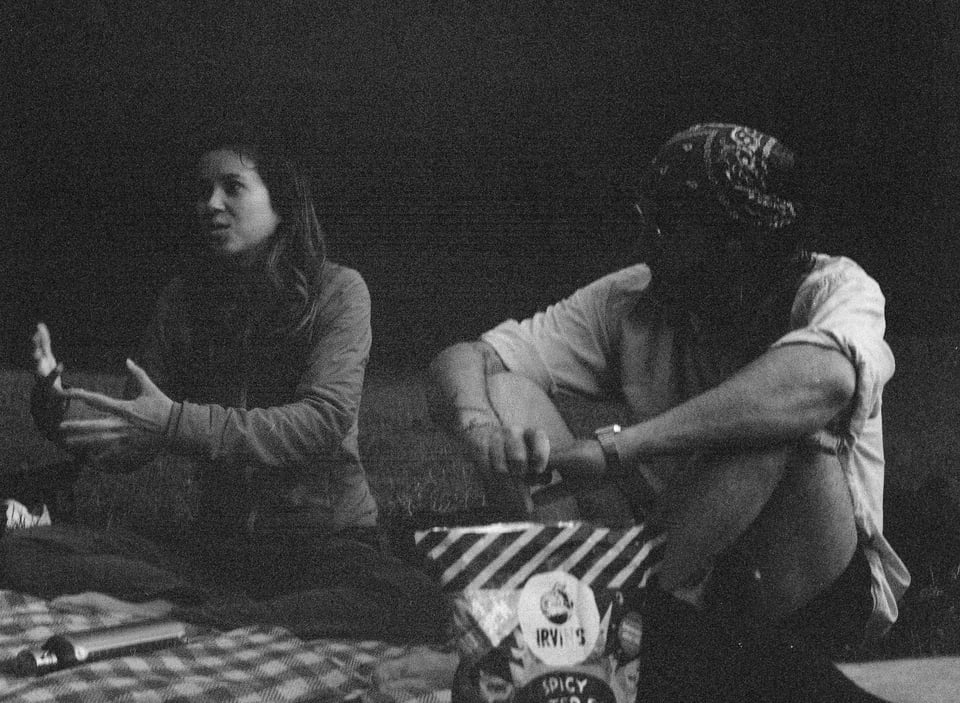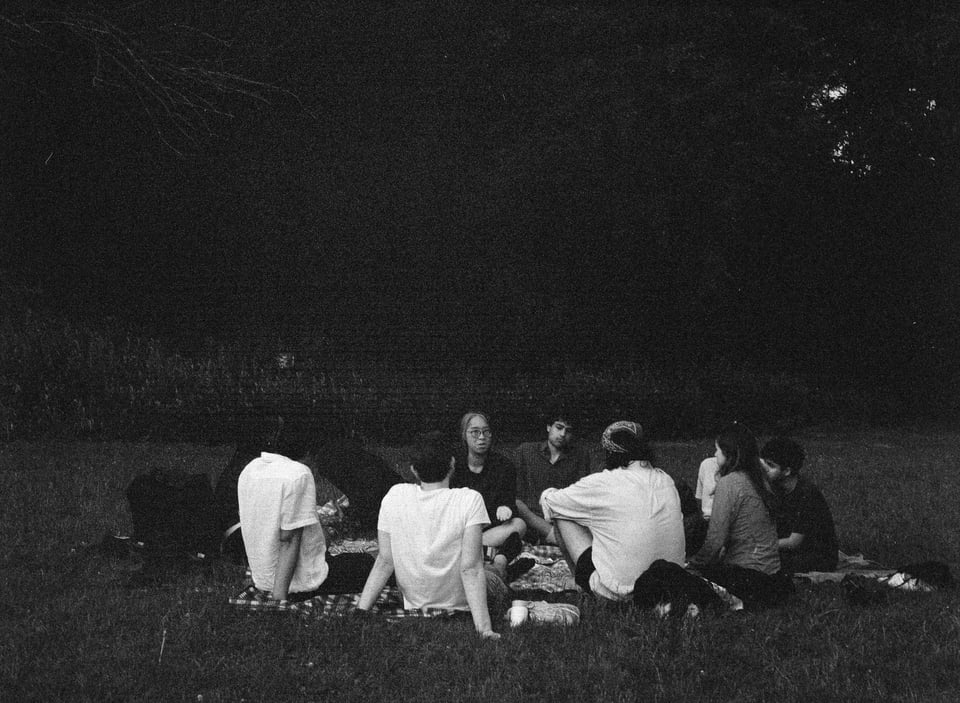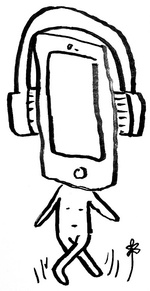
What is an iPhone, really? It’s circuits, metal, glass, battery, microphone, magnets, more. But it’s also a portal to our social lives, a vehicle for our emotional life, a tether to work, love, and sex. It can be surprising how little we tend to actually deeply think about our phones as objects. When was the last time you cleaned your phone? Asked yourself what was happening inside of it? Felt its weight in your hand, without looking at its screen? For most people in NYC, the phone frequently ceases to be an object and instead is an extension of ourselves. Entire lives are lived through it – economically, socially, even sexually. It not only informs but shapes how we think, communicate, and connect. From being the first thing we look to when we wake up to the source of a late-night scroll, a smartphone bookends our days.
In July, Chimeras Collective wrapped up a five-session class called Becoming Cyborg, taught in Prospect Park (and in Park Slope, weather necessitating). Our practice tends to orient us towards the ecological, which usually conjures up imagery of meadows and forests, dirt and bugs. Yet we believe that we exist within an ecology of technology, that we are an ecology of technology. To truly live well in 21st century New York City, we have to consider how our being is wrapped up in a tangled mess of wires, devices, wifi networks, AI chatbots, and countless other technologies. To do otherwise is to conjure up an artificial separation between nature and culture, a separation we seek to compost in our practice.

A point cloud of us in Nellie’s Lawn, our home for Becoming Cyborg
Becoming Cyborg was an experiment in technological embodiment. How do artful practices engaging our senses and our bodies aid us in navigating the complicated relationship between us and our technological ecologies? One core part of answering this question was setting – our classes primarily took place in Nellie’s Lawn, our favorite facilitation space in Prospect Park. Teaching around technology in a meadow setting was deliberate; not only does being in Prospect Park tend to ground us in our bodies, calming our systems with sounds of wind in trees and feelings of grass in toes, but it also materializes a thesis: we are cyborgs no matter our context. We bring our technological ecologies into the park, so there’s actually no better place to examine them. Perhaps a more sterile environment reminiscent of a traditional classroom would be more conducive to practices with technology (what did we do when it rained? put our phones in a garbage bag). But we’re so often already immersed in these kinds of environments (at work, at school, even often in spaces of leisure.
While it wasn’t our exclusive focus, Becoming Cyborg did lean heavily on an examination of our individual relationships with technology. How do you feel about your phone? How do you want to feel? What parts of your sensorium are mediated by technology? Which parts have atrophied due to overreliance? Still, an important thesis we hold is that said individual reflection hardly translates to effective action without some collective support. One of our activities was to change something about our phones, and observe how it changed our relationship to it, both as a vice and as an object (a stone). Folks went grayscale, turned notifications off, deleted apps, downloaded control apps that limit screen time. In recognition that changing our relationship to our devices involves undoing a remarkably advanced psychology of hacking our attention, and that we’re therefore unlikely to be able to “succeed” in doing so within a short time frame, we fostered an environment of collective care. Basically, in our class groupchat, people sent selfies if they failed in their goal of using their phone less, using it in their bed, going on tiktok, whatever it was. In the moment in which you falter, you have to literally look back at yourself, and share in the moment of vulnerability with others, all within a safe space.

We think a class can be a perfect environment for this kind of exploration, because it is a social space that is both intimate (shared commitments to showing up, small community), and not too-intimate (most likely not full of friends who you have complicated previous relationships with). We call this a micro-community, and it’s a goal in our teaching to facilitate the creation of this kind of group – for it to be vibrantly alive for its short tenure as a fixture in our lives. We learn best from each other, and friendship should be a part of our education. We think this was successful – we had some great vibes, for lack of a better term. This meant that we had a lot of fun! Frolicking in an enchanted meadow, taking selfies on each others’ phones, making our phones kiss. At the same time, we had a relaxed sense of building towards something, both in our relationships to technology, but also in the creation of our shared zine, which you can view at this link.
Thanks to each person who joined us for Becoming Cyborg. It’s certainly not the last time we’ll be teaching this class (and others! join us for Rats, Pigeons, and Cockroaches this fall), so please stay tuned for more class announcements in the future. We’re eager to bring more people (humans and nonhumans) into the chimera world.
On September 18, we held a reunion of our Becoming Cyborg class. We snacked, ran around, and shared reflections as the sun set and fog meandered its way through Prospect Park. Huddled around a couple lights in the middle of an empty meadow (passersby asked us if we were holding a séance…), we were reminded of the micro-community we built, together. A reminder of why we experiment, in the first place. What a special thing – we can’t wait to keep doing this work. Moments of coming together truly make it feel worth it. We’ll close with a quote from one of our cyborg readings, which guided us toward a more material and animistic relationship with technology, from Magic and the Machine, by David Abram:
“Yet there’s the paradox: for the more we engage these remarkable tools, the less available we are for any actual contact outside the purely human estate. In truth, the more we participate with these astonishing technologies, the more we seal ourselves into an exclusively human cocoon, and the more our animal senses—themselves co-evolved with the winds, the waters, and the many-voiced terrain—are blunted, rendering us ever more blind, ever more deaf, ever more impervious to the more-than-human Earth.”

Chimeras Collective
PS: Still space in Rats, Pigeons, Cockroaches happening Thursdays starting on October 16! Sign up here <3. Cost is sliding scale, so even if you can’t make all four sessions, you’ll still be welcomed for as little as $45.
You just read issue #3 of Chimeras Collective. You can also browse the full archives of this newsletter.

